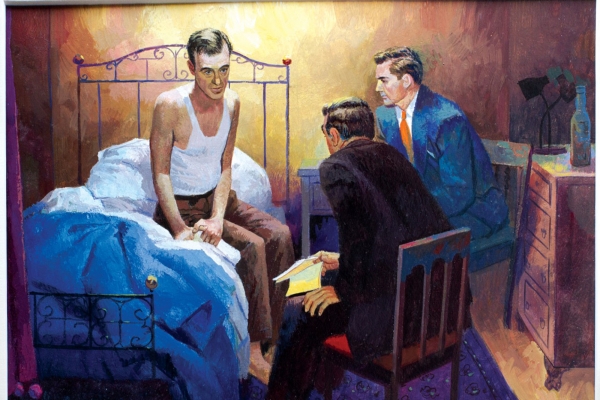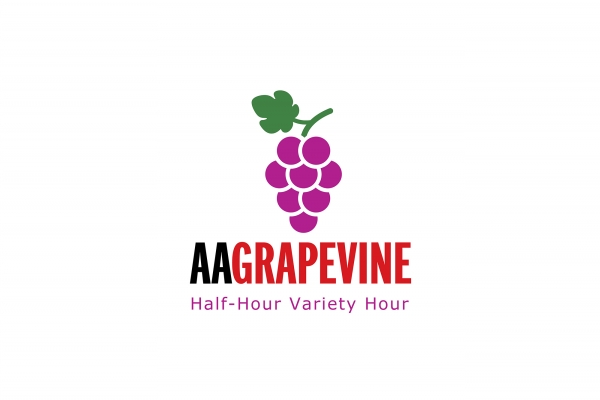Working with Professionals It Matters
A few years ago, while sitting in the monthly meeting of my local AA Intergroup, representing my home group, I heard the chairperson ask if anyone would be interested in filling the Cooperation with the Professional Community (CPC) position. She asked if someone would volunteer.
Naturally, I kept my head down. I did not want to make eye contact or be mistaken for showing an interest. However, the strangest thing happened at the end of the meeting. Without any forethought, I found myself asking what the responsibilities were for the CPC position and I left with a new commitment. I can only compare this unforeseen action to another event that shaped the rest of my life: the time when I went to my first home group, walked up to a member, and asked if he would help me and be my sponsor. There was absolutely no prior thought of speaking to this wonderful man, who remains my sponsor these many years later.
The local intergroup office called me a few weeks later and forwarded a request from the department of Physician Assistant (PA) education at a nearby university. Returning the call to the university, I spoke with the curriculum chair assigned to coordinate the upcoming semester's schedule for incoming "lecturers" for the clinical psychiatry course. He asked if AA would make a presentation to the students. I thanked him for the opportunity on behalf of our Fellowship and settled on the time and date. That was pretty easy, I thought. Then it struck me: Now what do I do? Perhaps I should finally go through the package sent to me a few days earlier from the CPC committee at the General Service Office.
Looking over the wealth of material, I realized, once again, how blessed we are. It was all there--the hard-earned suggestions of what has worked best in our attempt to carry the message of AA. This time, the experiences I was learning about were specific to AA's work with the professional community. Little did I know that a new door had been opened in my life.
My mind was filled with new perspectives of what AA is and what AA isn't. My sobriety was deeply affected by the experience, strength, and hope of the Fellowship. Earlier I had only glanced at the pamphlet, "Three Talks To Medical Societies" by Bill W., co-founder of AA; now I read it through. I felt deep gratitude and reverence for the tireless work and perseverance of the founders. This CPC commitment was giving me much more than I had imagined.
As the day of the presentation approached, I continued to review the CPC materials and made notes on some of the points I planned to cover. A friend from my home group agreed to come along and tell his story in order to give the students a feel for what they might expect to experience at an open AA meeting, which, of course, we would encourage them to do.
We left for our "road trip" to the school way ahead of time, the same way I was taught when heading out to any outgoing AA commitment. And, although I had gone to many commitments for AA, this one felt different. I remember telling my friend that I kept thinking about the part in Dr. Bob's story where he explains why he passes on to others what he had learned: "1. A sense of duty; 2. It is a pleasure; 3. Because in so doing I am paying my debt to the man who took time to pass it on to me; and 4. Because every time I do it I take out a little more insurance for myself against a possible slip."
We arrived in plenty of time and were warmly welcomed by staff and students.
I began by thanking the school and staff for inviting Alcoholics Anonymous to be part of the PA course work. I introduced myself and my friend as alcoholics who, at one time, were hopeless, but have found sobriety through the Fellowship of Alcoholics Anonymous. I explained that we hoped, by becoming more familiar with AA, they might refer patients for assistance in recovery from alcoholism to our Fellowship.
I explained that, usually, my participation in AA is based strictly on my own experience, so the more subjective the better. Although it was difficult to be objective about an organization of men and women who helped save my life, I tried to present a clear and understandable view of AA.
As medical professionals, they were presented with the opportunity to help many who suffer from alcoholism. I tried to impress upon them the great effect they could have on countless lives of alcoholics, citing that four out of every ten of the current membership of over two million said that they were referred to AA by a health care professional. I, myself, would have been long gone had it not been for the compassionate, caring, and knowledgeable medical professionals who attended to me during and after the many years of my active alcoholism. We tried to make clear that AA does not claim or wish to be an expert on the medical, physiological, or psychological aspects of alcoholism.
Explaining what AA is, my friend read our Preamble to the class. We then discussed what AA is not. It does not make medical or psychiatric diagnoses or prognoses, nor does it offer advice. AA does not provide medical services, housing, jobs, or financial assistance. AA does not support or participate in research or professional treatment.
My friend told his story to a quiet and attentive audience. His experience, strength, and hope told the AA story of recovery. We explained the different types of meetings and invited them to attend open meetings. The size and scope of AA worldwide was discussed, along with some of our literature, our website, aa.org, and the free quarterly newsletter for medical professionals, "About AA," to which they could subscribe.
We presented our book, Alcoholics Anonymous, and left for each of them a few pamphlets, "If You are a Professional," "AA as a Resource for the Health Care Professional," and "Is AA for You?"
When we went to the question and answer period, an interesting turn of events took place. At first, the questions and comments were mostly concerning the more academic information we had covered such as size and demographics of the Fellowship, important historical dates, and other information in our membership survey. Then, a hand in the back of the room came up. The woman asked a question in a timid and uncertain tone. "How do you know if you're an alcoholic?" Then another more personal question from a young man in the front: "What can I do for a member of my family who can't seem to stop drinking?" All questions, for the remainder of the class, were no longer academic.
We answered all the questions honestly and with whatever experience we could share. In closing, I told them just how difficult I was as an alcoholic patient. I know some of us will drink ourselves to the gates of death or insanity--despite a physician's best efforts.
Then I shared a story. Early one summer morning, I went for a run on the beach and came across an unbelievable sight. Hundreds of horseshoe crabs were washed up on the shore. Down by the jetty, a little boy was dragging one of the crabs by its sharp tail into the water. When I got to the boy, I asked what he was doing. He said he was trying to save the crabs by putting them back into the water before the heat from the sun baked and killed them in their own shells. I tried to convince him that he would never be able to save all the crabs. He paid little attention and kept struggling with one crab until he managed to get to the water's edge. Again, I told him he wouldn't be able to save them and that it didn't matter. The boy slowly turned to me, pointed to the one crab he was able to finally get back to safety, and said, "Well, it matters to that one."
And so, I asked my friends, "Please don't give up on us alcoholics."
When our time ended, some students thanked us, picked up pamphlets, and left. Others stayed awhile, asking about people they thought might be alcoholic. The staff thanked us and said they would contact the intergroup office to make arrangements for next semester.
As we drove back home, my friend talked about the precious gift of sobriety we have been given. I thought back to when I first came to AA and realized that I could not have imagined that there would be so much more than just abstinence--which I would have certainly settled for. The words of hope from our founders filled my mind: "See to it that your relationship with him is right and great events will come to pass for you and countless others. This is the great fact for us." A great fact, indeed.





